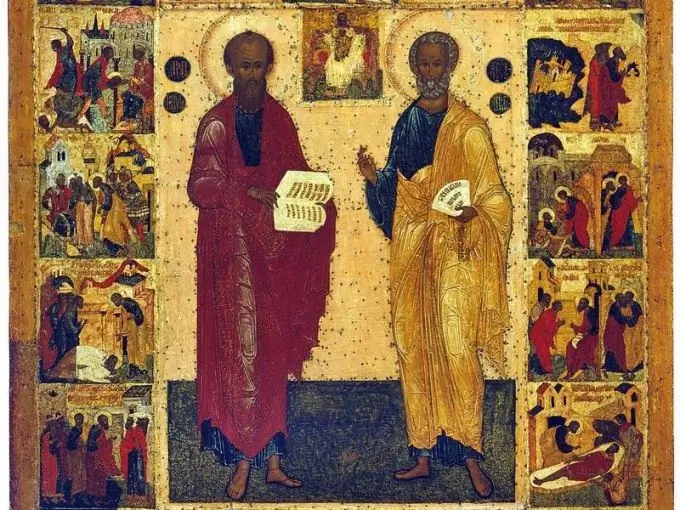- Author Antonio Harrison [email protected].
- Public 2023-12-16 07:44.
- Last modified 2025-01-22 21:44.
In the Orthodox tradition, there are four long-term fasts that contribute to the spiritual improvement of a person. On June 8, 2015, the time of Peter's Lent begins in the Orthodox Church, which ends on July 12, on the day of remembrance of the holy chief apostles Peter and Paul.

In the Christian tradition, there is another name for Peter's fast - the Apostolic fast. The very name of this period of abstinence indicates the historical connection of the Church with the good news of the Lord Jesus Christ, spread throughout the world by the works of the holy apostles. The preachers of the Gospel themselves, before going to preach, were in fasting and prayer.
Historical mentions of Peter's Lent took place already in the 3rd century, and from the 4th century on, the references of the holy fathers and teachers of the Church about the need for spiritual preparation for the feast of the holy apostles Peter and Paul, expressed in abstinence from passions and bodily fasting, become the most frequent. The construction of churches in honor of the supreme apostles in Constantinople and Rome was of particular importance in the historical formation of Peter's Lent. The erection of the majestic cathedrals was completed on the day of commemoration of the apostles Peter and Paul during the reign of the Roman Empire by the holy Equal-to-the-Apostles Constantine the Great in the first half of the 4th century.
At present, Peter's fast is an integral part of the life of an Orthodox believer. Despite the fact that the Apostolic fast is not strict, believers at this time abstain from food of animal origin. Fish is allowed on all days except Wednesday and Friday.
When abstaining in food, one must not forget the main essence of Orthodox fasting - the striving for spiritual improvement. During the fast, believers try to attend divine services more often, to participate in the sacraments of confession and communion. A special place in the practice of fasting is occupied by the Christian's desire to cleanse his soul from sins, as well as the desire for love, mercy, humility - those moral guidelines to which the Church calls a person.






